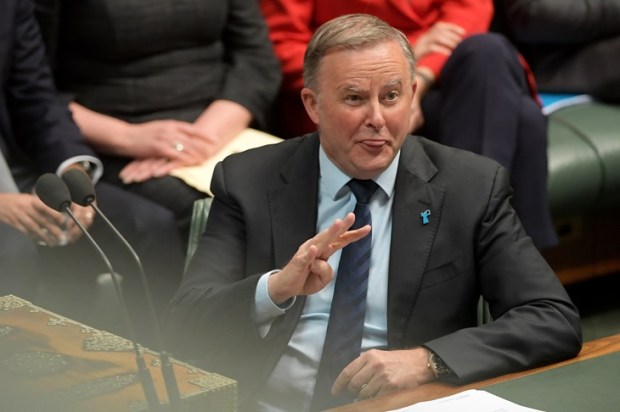This week in Britain, a landmark historical move to ban puberty blockers in gender clinics has been motioned and overseen by the National Health Service of England (NHS). They will no longer be prescribed to children at gender clinics.
These are drugs used to delay the onset of puberty in adolescent children typically administered to individuals who identify as LGBT and wish to transform their biological gender. Once puberty happens, it can make it ‘more difficult’ to fight natural biological functions which may not be in line with how the child purports to identify themselves.
Research indicates the issue is not so simple. Making it out to be, could be medically and psychologically negligent, and therefore of questionable legality.
Puberty blockers cannot reverse changes to biology that have already occurred, hence why several LGBT activists, particularly in psychology and medicine, have wanted to prescribe them as early as possible. The dangers in doing so appear to outweigh any ‘benefits’. Children are not usually considered to be of the mental capacity to make life-altering decisions about their health based on mental ideations about their supposed ‘new gender’, particularly in cases where gender dysphoria may be a side effect of trauma and abuse.
Puberty blockers are powerful substances. Messing around with the body’s hormonal functions can have a devastating impact if not done using a high threshold of professional care and diligence. Puberty blockers can stop breast development, interfere with reproductive health, as well as stop the growth of facial hair. Hormone interference can also become a medical catastrophe when it interferes with other biological functions that were not intended to be affected. Long-term issues can include infertility. Hormone prescriptions in children need to be done with extreme care, if at all.
One common puberty blocker is gonadotropin-releasing hormone (GnRH). This agonist blocks the onset of puberty and it is a substance that is being administered to children worldwide, despite it being a relatively new practice in history. These medications shut down the hypothalamic-pituitary-gonadal axis and either testosterone or oestrogen is halted temporarily. As a result, there are many unwanted potential side effects, including loss of bone density, injection site problems, emotional instability, and weight gain. These issues can further exacerbate other problems in the body. For example, a loss of bone density can result in more fractures, arthritis, or osteoporosis down the track. Increased unnatural fatty tissue in the body can set the conditions for a heart attack or chronic disease.
Critical lean body mass decreases may also occur with these hormone treatments creating fatigue and other issues caused by muscular atrophy or organ dysfunction. A decrease in reproductive organs may cause infertility. The long-term side-effects of gonadotropins where there is a ‘low oestrogen state’ may include hot flashes, depression, and memory loss. Although some doctors would argue that puberty blockers are not used long-term, the long-term side effects do indicate there is some kind of damage these substances are doing to the body in the short term too. Even temporary doses are unnatural and will cause problems, if the long-term side effects are this serious. Furthermore, puberty blockers are often used alongside hormone treatments whereby either oestrogen or testosterone is administered to an adolescent to promote the expression of the ‘desired gender’ and these hormones are used long-term. Long-term hormone therapies have been shown to be physiologically disastrous, and can even increase cancer risk. In fact, some medical studies are currently observing the trend between trans people and increased cancer risk. One hypothesis is the increased hormone treatments may be adversely affecting physiological function, and thus increase cancer risk. High-dose cross-sex hormones and androgen agonists stimulate breast lobule formation, which can contribute to cancer risk.
The NHS banning puberty blockers is rather telling of the lack of long-term medical research concerning these treatments in children, and it demonstrates that more research is needed before life-altering substances are given to kids who want them. According to Dr Hillary Cass, there is a serious lack of medical evidence which adequately considers what happens to children long-term, when they are prescribed puberty blockers.
According to an NHS policy document, it was concluded that there is not enough evidence to support the safety and clinical effectiveness of puberty blockers to make the treatment routinely available. It appears the NHS has realised that there is more research to be done in this department before it ethically justifies hormonal interventions in children.
From 2021-22 more than 5,000 children were referred to the Gender Identity Development Service in the UK, compared to the previous decade. There has been a several thousand per cent increase in gender dysphoria across the collective West, which has occurred within the last ten years alone. This demonstrates a skyrocketing number of youth are presenting with ‘gender dysphoria’ and these rates are astronomical and historically absurd. Research into why this is occurring should be undertaken before hormone treatments are given en masse to society’s most vulnerable individuals. The skyrocketing numbers of children presenting with ‘gender dysphoria’ are occurring in tandem with mass LGBT representation campaigns, which may have something to do with it.
The Gender Identity Development Service in the UK is closing at the end of March this year.
Several other nations and states are banning puberty blockers, in the fight against LGBT messaging which is altering the way the medical profession ordinarily functions. The old adage ‘do no harm’ which supposedly undergirds global medicine, is beginning to turn upside down due to activists attempting to make legislative changes to dictate the way medicine and psychology departments usually operate. Gender dysphoria in children is not a simplified issue. A one-size-fits-all approach is bound to do harm, if holistic healthcare and common-sense is ignored.
The state of Florida under Ron DeSantis has also banned puberty blockers – in fact, many states and nations have banned puberty blockers. Only 6 European countries have allowed their use. More nations and states worldwide deplore their use in children than support it. The recent decision by the NHS in England has set a new standard for much of the surrounding West to follow, and indicates many institutions need to start conducting serious evidence-based long-term studies, before liberally allowing this administration of dangerous treatments in children. Following England’s puberty blocker ban, the rest of the West must now consider how it chooses to approach the LGBT topic in kids so as to do what is in line with historical, medical, and psychological common sense. A failure to do so would be historically disastrous and frankly, tragic.
Got something to add? Join the discussion and comment below.
Get 10 issues for just $10
Subscribe to The Spectator Australia today for the next 10 magazine issues, plus full online access, for just $10.


























Comments
Don't miss out
Join the conversation with other Spectator Australia readers. Subscribe to leave a comment.
SUBSCRIBEAlready a subscriber? Log in